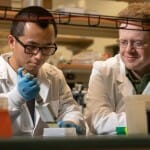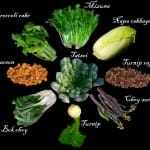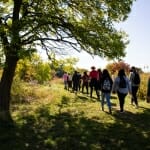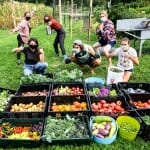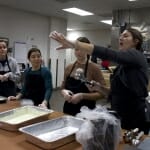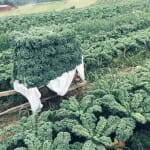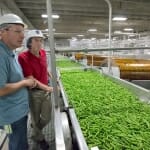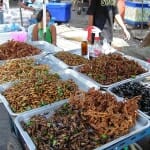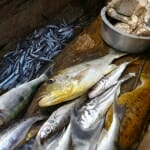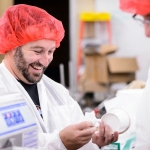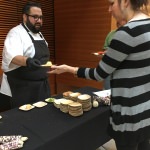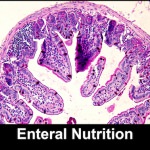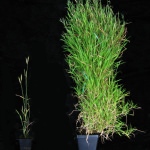Tag Food
First we tamed turnips. Then we turned them into bok choy and other veggies.
This new research represents the most complete look yet at how humans domesticated the ubiquitous species Brassica rapa, untangling the complex web of domestication.
F.H. King group provides students, local community with fresh produce despite pandemic
The student organization's goal is to connect students with the land they live on and the food they eat, including combating food insecurity and fighting against social injustice in the food system.
Meeting new demand for comfort food, SpaghettiOs were created by UW grad
Fifty-five years ago, Donald Goerke — asked to develop an easy-to-eat meal for children — created one of the classics: the "neat round spaghetti you can eat with a spoon."
UW-Madison student project aims to save food, reduce food insecurity
The packaging program is a modern gleaning operation that is directed at left-over food that was cooked, but not served, at markets and dining halls across campus. It delivers an average of 250 meals a week to students.
Easing the FoodChain: Startup aims to cut “friction” for local food producers, buyers
FoodChain, a spinoff started by two UW–Madison alumni helps small farms place their produce at restaurants and high-end food stores with on-line ordering and by handling the final delivery.
University Housing launches new Starship robot delivery service
University of Wisconsin–Madison’s over 66,000 students, staff, and faculty will have access to a fleet of 30 Starship Technologies robots that can autonomously deliver food directly to their location.
UW-Madison teaming up with Second Harvest to fight hunger
Helpful Harvest is a three-month pilot program that allows people to choose from available food options online.
Food processors, UW collaborate to remove guesswork from wastewater disposal
The results of a three-year study offer some support for the belief that much of the nitrogen in the wastewater from cheese-making and vegetable processing leaves the soil and harmlessly enters the atmosphere.
Eating crickets can be good for your gut, according to new clinical trial
The study shows consuming crickets can help support the growth of beneficial gut bacteria, and that eating crickets is not only safe in large amounts but may also reduce inflammation in the body.
Study finds “hidden harvest” in world’s inland fisheries
A new study published today in the Proceedings of the National Academy of Sciences says we are dramatically underestimating the role inland fisheries play in global food security.
Fantastic frozen fascination: UW–Madison stages one-of-a-kind ice cream workshop
Batch freezer short course participants come from all over to learn how to flavor ice cream from scratch, artisanal-style and using safe manufacturing practices.
Cakes make for delicious, approachable science outreach
For 14 years, Ahna Skop, a professor of genetics, has baked a cake to celebrate each of her lab’s academic publications and graduating students.
Farm to Flavor dinner showcases vegetables bred for flavor
Only deep, earthy beets, rich sweet corn and bright kale were fit for the Farm to Flavor dinner, a showcase for vegetables bred specifically for intense flavor by the UW–Madison plant breeding network the Seed to Kitchen Collaborative.
Peanut family secret for making chemical building blocks revealed
As you bite into your next peanut butter and jelly sandwich, chew on this: The peanut you’re eating has a secret.



